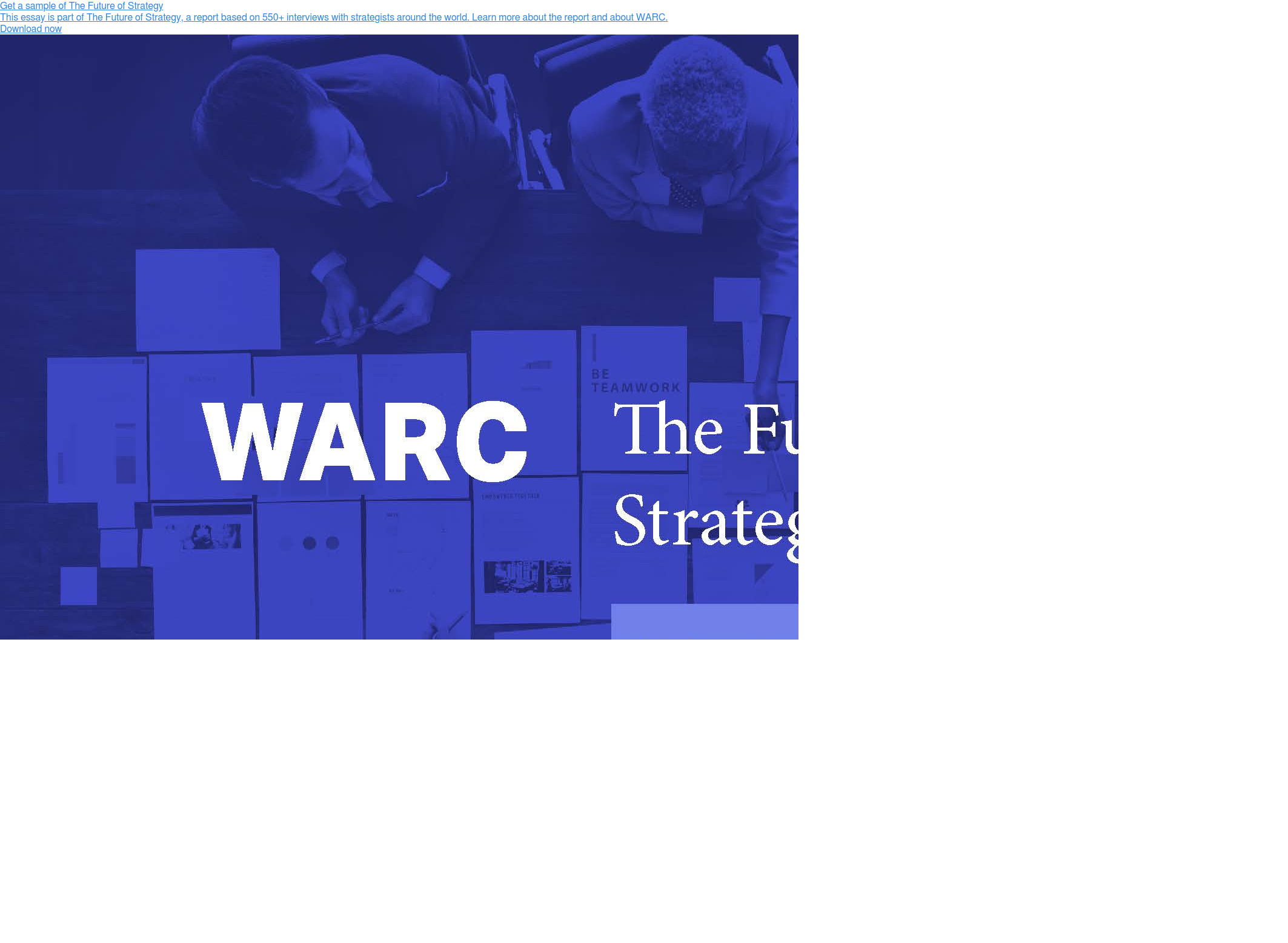As the ownership of strategy becomes ever more fluid, Frank Reitgassl, former head of strategy at BBH and director of brand strategy & creative at Mondelez, argues in this essay for WARC’s Future of Strategy 2018 report that the most important attribute of a planner is generosity.
The first thing to observe about the future of strategy is that the whole conversation is around the companies who are doing it. Is it consultancies coming in? Is it media agencies or media owners? Are clients in-housing?
But that feels like a bit of a dead end. For me – as someone who has worked on client and agency side – it’s more interesting to think about what it means for the strategists as they work on brands.
Brands are a set of associations in people’s heads. You hear a brand name, you see a logo – stuff happens. And those associations are built holistically; they’re not built by advertising, they’re built as much by how much the product costs, how you open the pack and where it’s sold. So there’s a big array of things to build around.
For that reason brand owners need to own brand strategy. They own the triggers of the association, they invest the money in building those associations, they reap the rewards of them, and they’re the only organisation in the whole mix that we talk about that actually has access to most of those knobs and levers that you can manage.
But that does come with a few challenges. One is the short-term expectation. We know that short-termism is driven by quarterly results. But the other danger of short-termism that I’ve observed on both client and agency side is the fact that brands are becoming stepping stones of people’s careers. You have one year, two years of a brand manager in place. If they’ve done well, they move on to the next brand; if they haven’t done well, they leave. In big organisations they might do a bit of brand marketing or planning and then move to sales, to become rounded individuals. But what it means is that there’s no one really sat there who has a long-term vision of the brand and can reap the long-term rewards of building a strong brand. It’s a real watchout for the future: you need people who are committed to the long-termness of brands.
The second issue is isolation. If you do brand planning in-house, you don’t have the benefit of working across many brands and categories like you do in an agency, so staying recent and learning from what other categories are doing are really difficult. That means, although ultimately brand planning should be owned by brand owners, they will still need some external sparring partners to challenge them and keep the thinking fresh.
Third: strategy is absolutely worthless without execution. You can make a nice PowerPoint chart and run people around it in a board room, but ultimately it only becomes an association in people’s heads if there’s an execution or something happening in the real world that people see. For me that is an intersection between brand planning, strategy and creative that mustn’t ever be lost.
The problem with talking about who will do ‘strategy’ assumes that the current structure of the industry stays rigid and the same. But it is all getting a bit blurry. You see not just brand strategy but sometimes creative moving to brand owners. You see that media has left the agency world; channel planning has come back in. You see some clients buying media themselves. So you see how the lines are blurring and everything will become more fluid. But does it matter?
If I’m a brand strategy person, I might work for and get paid by a brand owner, or a creative agency, or a brand consultancy, or a lead agency, or media owner, or God-knows-what. And I might be working with creatives of an in-house agency, or creatives from my own agency, or creatives of someone else’s agency. So for me it’s actually an exciting time.
The biggest challenge for me is around how we behave as strategy people – that is, people doing strategy. I’m reminded of a quote from John Bartle – one of the first that I learned in my graduate programme at BBH: “The best strategists are generous at heart.”
Sometimes the most important attribute of a planner is generosity. This is truer than ever. You have to be more open, you have to work with people in other organisations, whether creatives or other brand strategists. For me, that is the big challenge going forward.


